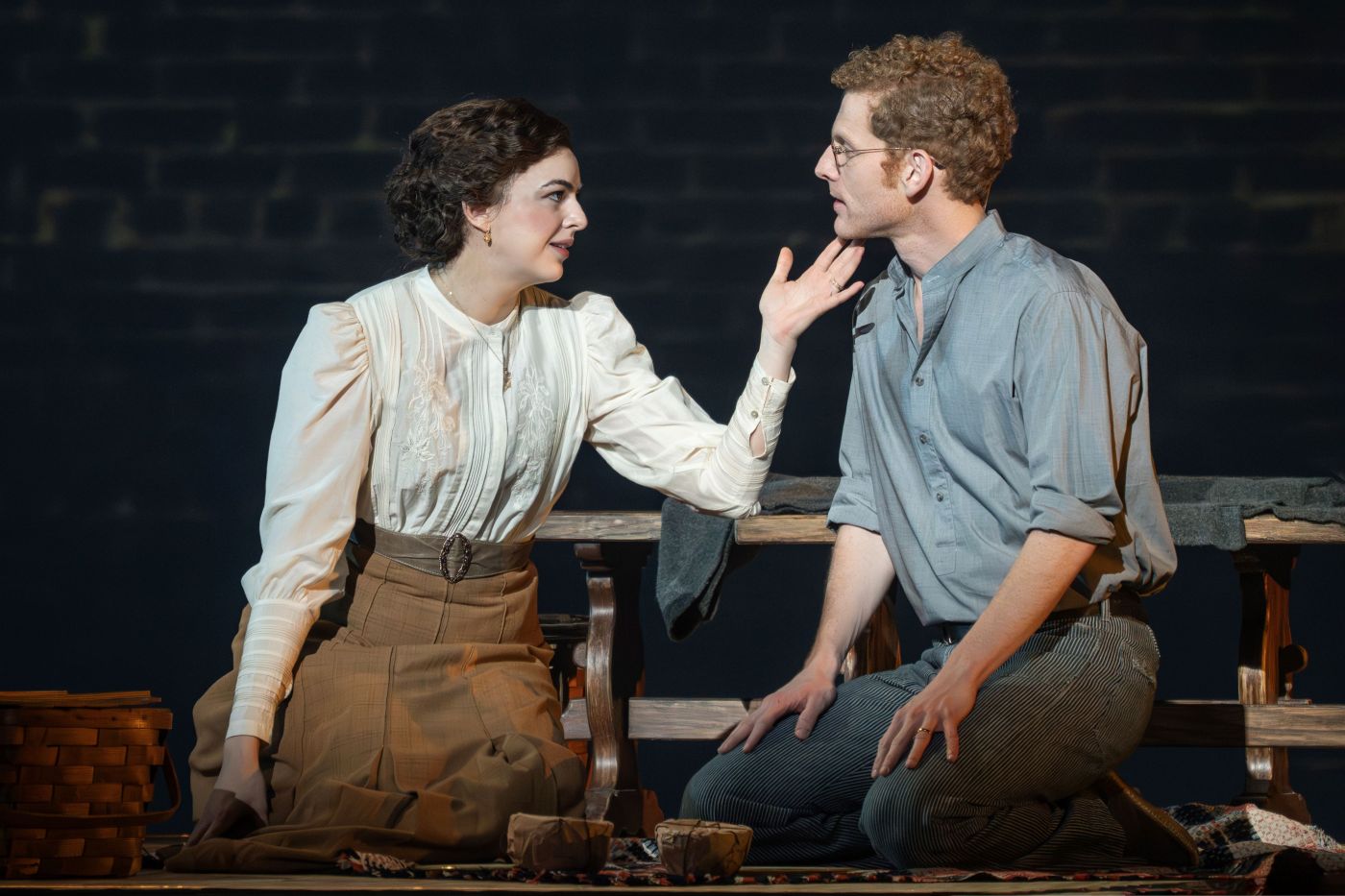
Alfred Uhry has seen a lot in his 88 years, but his musical “Parade” is living inside a renewed resonance he says is good for the material, yet not great for the world.
“It’s interesting because the first production was during President Bill Clinton’s years, and it wasn’t as prescient as it is now,” Uhry said. “If a person is in the minority, be it Black or Jewish or Asian, it’s even more dangerous now that it was 25 years ago, and so it speaks to people.”
“Parade” is the true story of Leo Frank, a Jewish superintendent of an Atlanta pencil factory. His conviction for the rape and murder of a child employee, 13-year-old Mary Phagan in 1913, is widely considered unjust, largely attributed to a biased trial and antisemitism. Two years later in 1915, Frank was kidnapped by armed men and lynched in Phagan’s hometown of Marietta, Georgia. The confluence of those events sent the country on a more reviled path, which included reviving the Ku Klux Klan.
The musical, which won a 2023 Tony for best revival, runs at BroadwaySF’s Orpheum Theatre through June 8.
In 1998, the original production garnered Uhry and composer Jason Robert Brown Tony Awards for best book of a musical and best score, respectively. Yet the production struggled to find an audience, running for just over two months before closing in February of 1999.
By then, Uhry had earned the Pulitzer Prize for Drama for 1988’s “Driving Miss Daisy,” and the 1997 best play Tony award for “The Last Night of Ballyhoo,” the first two plays in his “Atlanta Trilogy.” Directing “Parade” was theater legend Harold Prince, but with Stephen Sondheim having turned the project down, Prince mentioned a young composer who was working with his daughter Daisy on an off-Broadway show. Brown’s youth at 23 and lack of a Broadway pedigree were things Uhry found scary, but those fears were settled when Brown shared the first two songs with Uhry.
“I can’t imagine ever having a better collaborator for this than Jason. I was just lucky.”
Uhry learned quickly that Brown’s talents were formidable, with abilities to manifest Uhry’s passion for the South into sound and song.
“I remember telling him that every time I went back to see my family after I started living in New York, I was really moved when we started to land at the airport by the side of the red clay hills, which told me I was back home again,” Uhry said. “There was something on Mary Phagan’s tombstone about the red hills of Georgia, and he seemed to understand there was pride in where you come from. To top it all off, he wrote beautiful love songs.”
Those songs were first and foremost a window into the soul and motivations of Frank, the embattled protagonist.
“I firmly believe that in a show like this, music is like costumes, because it has to both explain the character and also not betray the character,” Brown said. “The fact that it’s 1913 in the South, and we’re talking about a pencil factory and about a Jewish man and his wife who are sort of lightly assimilated into the community, I felt like those are a lot of rules, and I like having those boundaries.”
The restrictive environment presented formidable challenges, which included writing songs for a somewhat reticent character such as Leo Frank, who is not particularly emotive. Yet Brown leaned into those challenges, allowing Frank’s natural expressions to peek through his own personal clouds.
“By the middle of the second act, this very buttoned up person has become much more emotional and connected, so how can I have him sing and still allow him to have room to open up as the show goes on?” Brown asked. “That was the challenge, and one of the ways was to have him sort of be funny and look through the lens of someone very distant from it. As he gets deeper and deeper into his own circumstance, he has to dig inside himself and not just view it with ironic distance, but actually open his heart.”
With so much of the show surrounding the crippling circumstances of Leo and Lucille Frank, Uhry finds a small morsel of wisdom inside the couple’s open heart, a lesson for society as a whole.
“In their case, I think what I would say is they did the best they could under the circumstance, and in life, that’s really all we can do.”
David John Chávez is chair of the American Theatre Critics/Journalists Association and a two-time juror for the Pulitzer Prize for Drama (‘22-‘23); @davidjchavez.bsky.social.
‘PARADE’
Book by Alfred Uhry, music and lyrics by Jason Robert Brown, presented by BroadwaySF
Through: June 8
Where: Orpheum Theatre, 1192 Market St., San Francisco
Running time: 2 hours, 30 minutes with an intermission
Tickets: $70-$239; broadwaysf.com